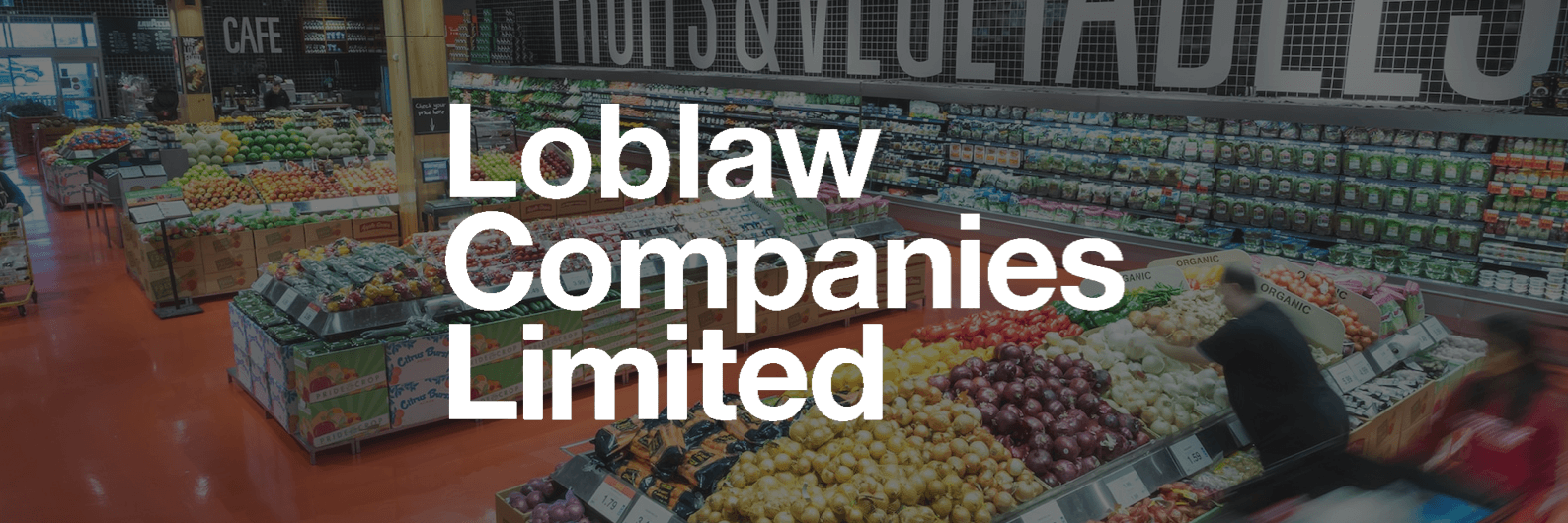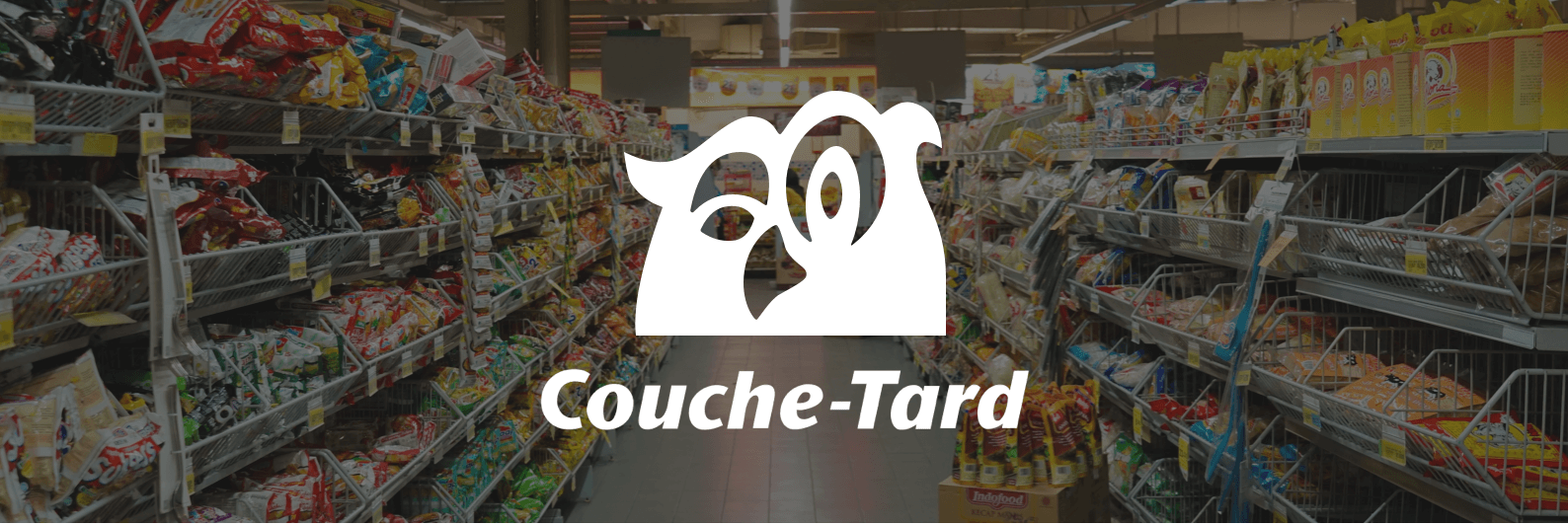Top 7 Canadian Grocery Stocks to Buy and Forget

What are Canadian grocery stocks?
Canadian grocery stocks are shares of companies that operate in the grocery industry in Canada. These stocks represent ownership in the companies that run grocery stores, supermarkets, and other food retail businesses across the country. Investing in Canadian grocery stocks allows individuals to participate in the growth and profitability of the food industry in Canada.
Overview of the Canadian grocery industry
The Canadian grocery industry is a thriving sector that plays a crucial role in providing Canadians with essential food and household products. It consists of various types of businesses, including supermarkets, grocery stores, convenience stores, and specialty food retailers. Canadian grocery stocks are influenced by factors such as consumer demand, market competition, and regulatory policies.
Top Canadian grocery stocks to watch
Canada’s grocery sector is robust and has a number of key players who have carved a niche for themselves in the market. Among them, Loblaw, Metro Inc., and Empire stand out not just for their size, but also for their market strategies, consistency, and resilience.
As we look ahead to 2023, some of the best Canadian grocery stocks to consider for investment include companies with proven dividend growth. These stocks offer potential for capital appreciation and regular income in the form of dividends. Canadian grocery stocks with dividend growth are attractive to investors seeking stable returns.
Which are the top Canadian food retailers and grocery stores?
Canada has several top food retailers that dominate the grocery market. These companies operate a network of stores across the country and offer a wide range of food and household products to Canadian consumers. Some of the largest Canadian food retailers include Loblaw, Metro, and Empire Company.
Grocery stocks are great consumer staple stocks that are defensive in times of volatility.
Couche-Tard, who’s weathered the sell-off, is growing its business and might threaten the classic grocery store with its convenience and availability. As a company that continually adds value to stockholders, this could be a good alternative buy.
Loblaw Companies Limited is one of the largest Canadian food retailers, operating under various banners such as Loblaws, Real Canadian Superstore, and Shoppers Drug Mart. Metro Inc. is another major player in the market with its Metro and Food Basics grocery banners. Empire Company Limited, through its subsidiary Sobeys, also holds a significant market share in the Canadian grocery industry.
In addition to Loblaw, Metro, and Empire Company, other key players in the Canadian grocery industry include Alimentation Couche-Tard, which operates convenience stores across Canada, Dollarama, and Shoppers Drug Mart, a leading pharmacy retailer that also offers grocery products. These companies contribute to the competitiveness and diversity of the Canadian food retail sector.
What are the best grocery stocks to buy in Canada?
When considering the best grocery stocks to buy in Canada, it is essential to analyze their performance and growth potential. Investing in top-performing Canadian grocery stocks can provide investors with attractive returns over time.
Metro Inc (A) (MRU-T)
Metro is one of the largest Canadian grocery companies and operates a portfolio of grocery banners, including Metro, Food Basics, and Super C. It has a strong presence in both Ontario and Quebec and offers a wide range of grocery products to Canadian consumers. Metro’s stock has consistently performed well, making it an appealing choice for investors.

Loblaw Companies Ltd (L-T)
Loblaw is another leading Canadian grocery retailer, operating a network of stores under various banners, including Loblaw, Real Canadian Superstore, and No Frills. The company is known for its diverse product offerings, including both national and private label brands. Loblaw’s stable revenue stream and consistent performance make it an attractive investment option in the grocery sector.
Empire Company (A) (EMP.A-T)
Empire Company is one of the largest food retailers in Canada, with well-known grocery banners such as Sobeys, Safeway, and Thrifty Foods. The company operates across the country and consistently delivers strong financial results. Empire Company’s diversified portfolio and focus on customer satisfaction position it as a top player in the Canadian grocery industry.
Sobeys, a subsidiary of Empire Company, is one of the largest food retailers in Canada. The company operates a network of grocery stores under various banners, including Sobeys, IGA, and FreshCo. Sobeys’ focus on customer experience and innovation, such as its online grocery delivery service, positions it as a strong contender in the Canadian grocery market.

North West Company (NWC-T)
The North West Company is a notable retail enterprise with roots tracing back to the 18th century. Originally, it was a fur trading business, competing fiercely with the Hudson’s Bay Company for dominance in the fur trade.
Over the years, however, the focus of the company evolved, transitioning from fur trading to a retail business, catering to the diverse needs of communities in northern regions and other remote areas. In the last few years, North West Company sold many of its Giant Tigers stores.

Alimentation Couche-Tard (ATD-T)
Couche-Tard is a leading convenience store operator, with a significant presence in the Canadian market. The company owns and operates several Canadian convenience store brands, including Circle K. Couche-Tard’s expanding network and focus on customer convenience make it an attractive investment option in the grocery industry.

Dollarama Inc. (DOL-T)
Dollarama, has long been recognized as one of Canada’s most prominent discount retailers. However, recent trends and strategic shifts have seen the company delving deeper into the grocery product sector, a move that promises significant potential for both the company and its consumers.
The retail landscape has witnessed a rise in consumers’ demands for affordability without compromising on quality. Dollarama has astutely responded to this by not only offering general merchandise but also increasingly stocking grocery products on its shelves. This shift has made Dollarama stores more versatile and a go-to destination for many shoppers who are looking for a quick grocery run alongside their other purchases.
What companies are a threat to Canadian grocery stocks?
Big box stores such as Costco and Walmart are threatening the growth of grocery stores, as they create super centres that offer much more than just groceries and can sometimes offer better value. These companies are ramping up their grocery section and are looking into online as well. The minimum wage situation could also affect grocery stores negatively, since they run on pretty tight margins. Competition could cut revenues and leave grocery stores vulnerable.
However, people have to eat and grocery stores aren’t going anywhere so this might be a good place to hide during stock market storms. Canada’s retail landscape boasts several key players, but the undeniable impact of global giants Costco and Walmart is hard to miss. Both companies have successfully tailored their vast resources, supply chain, and retail experience to resonate with Canadian consumers, creating a significant and growing presence north of the US border.
For investors looking beyond Canadian borders, both Costco and Walmart offer compelling investment narratives. Their stocks trade on US exchanges and have historically shown resilience and growth. You might want to consider adding them to your grocery stocks portfolio.

Costco Wholesale Corporation (COST-Q)
Known for its membership-based bulk shopping experience, Costco offers Canadians value for their dollar. Over the year, the company has opened numerous warehouses across Canada, with each location often seeing bustling crowds and high sales volumes. Their emphasis on quality products at competitive prices, combined with exclusive member benefits, keeps Canadians renewing their memberships year after year.

Walmart Inc (WMT-N)
Walmart‘s entry into Canada was marked by its acquisition of the Woolco chain in the 1990s. Since then, it has expanded exponentially. Today, it offers Canadians a vast range of products, from groceries to electronics, apparel, and much more. Its commitment to ‘everyday low prices’ appeals to value-seeking Canadian consumers, and its multi-format presence, including supercenters, has fortified its footprint.
How to invest in Canadian grocery stocks?
Factors to consider when investing in grocery stocks
When investing in grocery stocks, there are several factors to consider. These include the company’s financial health, market competition, growth potential, and management’s track record. Additionally, analyzing dividend yield, which measures the income return on an investment, can be important for investors seeking regular income.
Canadian grocery stocks with dividend growth
Canadian grocery stocks with dividend growth provide investors with the potential for increasing dividend payments over time. Companies such as Loblaw, Metro, and Empire Company are known for their consistent dividend payouts and have a track record of dividend growth. These stocks are favored by income-oriented investors.
Investors seeking a steady stream of income may consider Canadian grocery stocks with high dividend yield. Dividend yield is a financial ratio that indicates the annual dividend income as a percentage of the stock price. Certain Canadian grocery companies, such as Loblaw, Metro, and Empire Company, have a history of providing competitive dividend yields.
Growth potential of Canadian grocery stocks
Canadian grocery stocks have significant growth potential due to factors such as population growth, changing consumer preferences, and increased demand for convenience. As the Canadian economy evolves, the grocery industry is poised to benefit, offering growth opportunities for investors.
How is the Canadian grocery industry performing?
The Canadian grocery industry has experienced notable trends and shifts in recent years, which have impacted the performance of grocery stocks. Understanding the current state and outlook of the industry is crucial for investors looking to make informed investment decisions.
Market trends in the Canadian grocery industry include increased online shopping, growth in private-label products, and a focus on sustainability. These trends present both opportunities and challenges for grocery companies and can impact the performance of their stocks. Monitoring market trends and the outlook for the industry is important for investors.
Impact of COVID-19 on the Canadian grocery industry
The COVID-19 pandemic has had a significant impact on the Canadian grocery industry. Demand for essential food and household products surged during the pandemic, leading to increased sales for grocery companies. However, the pandemic also posed operational challenges and increased costs for industry participants.
Stock performance of major Canadian grocery companies
The stock performance of major Canadian grocery companies has varied based on industry dynamics and company-specific factors. Investors should analyze historical stock prices, financial statements, and market commentary to assess the performance of different grocery stocks.
Q: What is Grocery Stocks Canada?
A: Grocery Stocks Canada refers to Canadian food stocks, including companies like Metro, Empire Company, and Maple Leaf Foods.
Q: What are some of the largest Canadian grocery stocks?
A: Some of the largest Canadian food stocks include Metro, Empire Company, and Loblaw.
Q: What is Empire Company?
A: Empire Company is a Canadian conglomerate that owns various grocery and retail brands, including the supermarket chain Sobeys.
Q: Why should I consider investing in Canadian food stocks?
A: Investing in Canadian food stocks can be a wise decision for several reasons. Firstly, the food and grocery industry is considered low-margin but high-volume, making it a stable and reliable investment. Additionally, Canadian food stocks offer exposure to both the Canadian and U.S. markets, providing diversification. Finally, many Canadian food stocks have a strong dividend growth streak, which can be attractive to income-focused investors.
Q: What are some of the top Canadian food stocks to consider?
A: Some of the top Canadian food stocks to consider are Metro, Empire Company, and Loblaw. These companies have a strong presence in the Canadian market and show promising performance.
Q: How does Maslow’s Hierarchy of Needs relate to Canadian food stocks?
A: Maslow’s Hierarchy of Needs is a psychological theory that suggests people have certain basic needs, including food, that must be fulfilled before they can focus on higher-level needs. Canadian food stocks, being a source of food for the population, can be considered as fulfilling one of these basic needs, making them a potentially stable and essential investment.
Q: What makes Canadian food stocks different from other types of stocks?
A: Canadian food stocks offer something different to the table compared to other types of stocks. They are part of an industry that caters to a basic and essential need (food) and operates through a network of grocery stores and food distribution channels.
Q: What are the benefits of investing in grocery stocks?
A: Investing in grocery stocks can provide a stable source of income through dividends and potential long-term capital appreciation. Grocery stocks tend to be less volatile compared to some other sectors, making them suitable for conservative investors.
Q: Are grocery stocks affected by consumer trends?
A: Yes, grocery stocks are influenced by consumer trends and spending habits. The food retail industry is directly connected to the food and beverage sector, and changes in consumer preferences and behaviors can impact the performance of grocery stocks.
Q: How can I determine if a grocery stock is a growth stock?
A: A growth stock in the grocery industry may demonstrate consistent revenue growth, expanding market share, and innovations in their food products and services. Analyzing a company’s financial reports, growth strategies, and market performance can provide insights into its growth potential.
Q: How does a company’s international exposure impact Canadian food stocks?
A: A Canadian food stock with international exposure means that the company operates or has a presence outside of Canada. This can provide additional growth opportunities for the company and potentially lead to increased performance in its stock.
Grocery stocks refer to stocks of companies that are involved in the food retail industry. These stocks represent ownership in companies that operate grocery stores and provide essential products to consumers. Investing in grocery stocks can be a lucrative opportunity as the demand for food and groceries remains consistent regardless of economic conditions…











